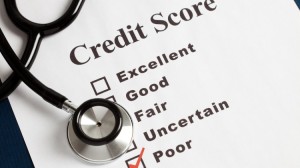 On today’s show Doug addresses credit report questions sent in by listeners and gives great credit advice. If you’re looking for a mortgage and need professional financial advice reach out to Doug call/text (314) 472-DOUG (3684)
On today’s show Doug addresses credit report questions sent in by listeners and gives great credit advice. If you’re looking for a mortgage and need professional financial advice reach out to Doug call/text (314) 472-DOUG (3684)
What’s The Weight of My Negative Account?
Listener Question: When a collection or another derogatory item is deleted from the credit report how much will the score increase?
A derogatory account can weigh as little as 0 points on your credit score! But don’t get too excited because you actually don’t want your derogatory items weighing nothing. On the other side of the scale you could lose up to 175 points with one negative remark and this is much better news… let me explain.
Your positive credit represents your potential credit score ceiling, and your negative credit reduces that ceiling to wherever the scores are sitting. The more points you lose on a negative remark the better your positive credit was to begin with. For example, if you have 10 collections and no positive credit then you have a 0 or N/A score, therefore each collection weighs 0 points. It’s not until you build up your positive accounts that these collections carry any weight. Other major factors regarding weight of a derogatory remark is the quantity of negatives you have, the more negative marks on the credit report the less each one weighs (diminishing returns), and also your Date of Last Activity (DLA) is a major player. The more recent the DLA the more damaging the account. The balances of an account are not a factor!
What’s the difference between a Collection, a Charge Off and a Profit & Loss on a credit report?
Listener Question: What is the real difference is between a Collection, a Charge Off and a Profit & Loss on a credit report?
The quick answer is that there is a huge score impact difference between them. First off, you need to categorize a Charge Off and Profit & Loss (P&L) into the same group on a credit report, where the difference is just mere accounting terminology. However, the difference between a collection and the other two can be enormous.
Let’s take a look out how accounts can be classified on a credit report. They either show as an “R” for “revolving”, “I” for “installment” and “O” for “other.” A collection is neither a revolving account nor an installment leaving the only choice left as “Other.” Balances are irrelevant on an “Other” account, so whether you owe $0 or 10K your score will not change. Rather, the weight of the account is based on the DLA (Date of Last Activity). The newer the date the more it weighs, which is why paying off your collections will usually lower your scores, as it will renew your DLA.
Charge Offs and a P&L, on the other hand, are more likely (maybe an 80% chance) to report as a revolving account. This changes the game because, not only do the same rules of DLA apply, but now the balance also has an impact. Whenever you are maxed out on any revolving account, good or bad, it causes tremendous score reduction consequences. The mathematical dilemma then becomes what is worse; having a maxed out charge off/P&L, or settling on it only to renew your DLA?
Podcast: Play in new window | Download
